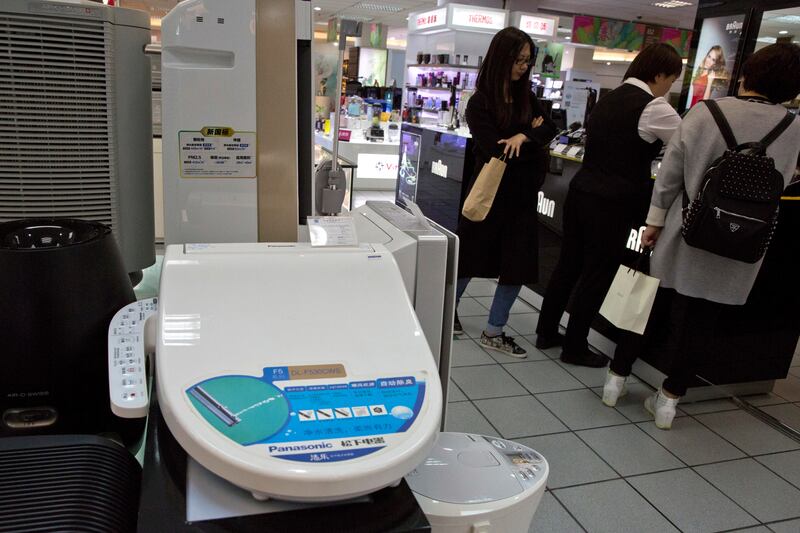Bathroom talk is not considered polite in mixed company. I’m not sure smart bathroom talk is any better, but here goes.
Among the most interesting trends predicted for the future is that your bathroom will turn into a kind of in-home doctor’s office. Smart toilets will examine your, uh, waste and tell you if you have some undetected health problem.
Are you excited about this?
These devices already are in development. Four years ago, Stanford University reported on a researcher who was developing a smart toilet that could detect some cancers, disorders and kidney problems.
As those clever folks at Stanford put it at the time, “its No. 1 source of data is number one. And number two.”
But this researcher was hardly alone. Today, many companies are getting in on this latest use for smart technology.
This led The Wall Street Journal, a few days ago, to speculate on what could be an average morning routine by 2034. After awakening and stumbling into the bathroom, your toilet tells you you’re dehydrated and reminds you to take a water bottle with you. Then your mirror reminds you to take a prescription cream for your skin. After your shower, you step on a mat that weighs you and records data about your body composition, and …
Wait. What?
I’m all for self-cleaning toilets. I understand that in-home disease detection devices could alleviate the stress of crowded health clinics as society continues to age. No more samples required on demand by busy nurses. Early detection of health problems could save lives.
But does the bathroom of the future have to nag us, as well? Why do I feel confident that the next step will be a direct AI connection from the bathroom to the kitchen, where I will be locked out of the ice cream that’s in my freezer? Will my appliances and fixtures turn against me? If I ignore all the reminders, will a 3D doctor suddenly materialize in my way and demand answers?
Actually, that’s not so far-fetched. The Journal said the bathroom mirror could turn into a two-way interface that connects you to a health professional if your smart fixtures detect something wrong.
You’re probably way ahead of me, here. The big concern may end up being the one thing people want most in their bathrooms — privacy.
In order to work properly, your bathroom would need to know who is using it. At Stanford, researchers said the toilet could identify users by reading fingerprints on the flush handle. But because that isn’t foolproof (someone else, such as a caretaker, could be doing that for you, after all), he would use a scanner inside the bowl that identifies people in a more, shall we say, private way.
Among researchers working in this field, assurances abound that all data collected would be stored in a secure, cloud-based system. The Wall Street Journal reports that Toi Labs out of San Francisco says its technology will separate data from identifiable names. Another company, CareOS, would keep all data stored in the bathroom. Nothing would escape into the internet.
But the Journal then asked what should be an overriding question: “Do people really want their time in the bathroom monitored and analyzed?”
As the 18th-century political theorist Edmund Burke is quoted as saying, “Better be despised for too anxious apprehensions, than ruined by too confident security.” Remember the numerous data breaches of credit card information held by retailers? How about the breaches that already have hit hospitals? The web site healthitsecurity.com keeps a running list of those.
Not to mention, what if you’re hosting a party and one of your guests suddenly triggers an unwanted mirror encounter with a doctor?
The resourcefulness of the future bathroom seems to have no limits. Researchers are looking at ways to study what goes down our sinks and are building smart toothbrushes that detect COVID-19 or cancer cells.
All of this ought to be good news. Lives could be prolonged, after all.
But as Seung-min Park, an instructor of urology at Stanford Medicine, recently told futurity.org, “There are big psychological barriers to advancing smart toilets.”
Can’t argue with that.
As effective as a smart bathroom may be, this could signal the limit to public acceptance of AI. It can have our banking, shopping and driving data, but not this.
People want to be healthy, but there are some situations in which they also want to feel alone. Completely alone.


 alt=Jay Evensen
alt=Jay Evensen